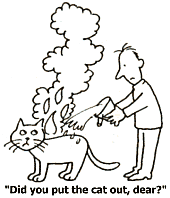ECW: Monday, Oct. 30th
Writing a Restaurant Review
In order to write a good restaurant review, you must include information from each of the four following points:
Food:
Name the dishes you tried. Comment on the flavour, the presentation, freshness, spicing. Did the food arrive hot? Were the portions big enough?
Service:
Was the waiter helpful and well-informed? Was the table cleared quickly? Did your water, tea, wine arrive when needed? Was your waiter easy to attract to your table? Did you get your bill quickly when you were ready to leave?
Ambiance:
Was the restaurant clean? Was it well decorated and comfortable? How were the other customers? Was there music? Was it too loud? Were the bathrooms clean?
Other:
Was the restaurant better or worse than others like it? Was it a good deal? Is it a good place for a birthday or other celebration? Should you make a reservation? Is it a good place for a large group?
Comprehension Questions:
1. What word best describes the food at “Buddha’s Belly”?
2. Which are the writer’s favourite dishes?
3. Which Thai dish is uses as the measure of quality in a Thai restaurant?
4. What are most dishes served with?
5. How’s the service overall?
6. Why is the service sometimes slow?
7. How is the restaurant decorated?
8. What is the author most impressed with?
9. Who are the majority of patrons in this restaurant?
10. What is the best aspect of this restaurant for the author?
11. Based on this review, would you like to try it out?
(this is not a true description!!!)
“Buddha’s Belly Button,” - A Thai Restaurant
The Buddha’s Belly Thai Restaurant in Itaewon (Line 6, exit 4), around the corner from KFC, is one of my favourite Thai-style restaurants in Seoul. The food there is simply out of this world. The appetizers, soups, curries, and noodle dishes are always prepared fresh and from high-quality ingredients. My friends and I love to eat most of the dishes, especially Thom Ka Gai, spicy sweet and sour coconut cream soup with chicken, green curry with beef, and Pad Thai, Thai-style noodles with vegetables and fish sauce. First, I have to praise the pad thai because the quality of a Thai restaurants is usually judged by their pad thai. At Buddha’s Belly Button the quality is excellent. The noodles are imported from Thailand, the vegetables are fresh, the amount of fish sauce is just about right. The second dish I want to praise is the green curry with beef. It simply tastes divine, spiced to perfection with lemon grass, lime leaves, and chilies. The meat is tender and cut bite-sized. Finally, the soup, tom ka ghai, as an appetizer is excellent. The chicken in this dishes melts in your mouth! The dishes are served steaming hot. Most are served with a big bowl of freshly cooked jasmine rice. Be careful: all the portions are huge, so don’t order too much food.
The service is quite good overall. The wait staff is trained to be attentive and polite. They also speak excellent English and know the dishes very well. They can explain exactly what each meal is. Unfortunately, they can sometimes be quite busy, which means that getting a dirty dish cleared or getting some more water or another order of drinks takes a bit too long. Also, getting the bill at the end of the meal often requires some patience. However, the waiters are apologetic about the wait, so the customers easily forgive them.
As far as the ambiance is concerned, the restaurant is very clean and very nicely decorated. I am especially impressed by the spotless restrooms. The inside of the restaurant is decorated in dark gray and red. The walls, floor and tables are dark, while the plush seats are scarlet red. There are many beautiful pictures and other art objects imported from Thailand on the walls and window sills. Also, huge pots of beautiful orchids in the windows and corners break out the severe dark and red tones. Each table has a center piece that consists of a small vase with a single flower and a tea-light in a small glass. It’s a bit dark for my taste, but it’s perfect for a romantic or quiet dinner. Most of the guests who come here are either couples on a date or good friends who want to chat and catch up in a quiet environment. The music is quiet and ethnic ranging from traditional Thai to bossa nova.
The best thing for me, however, is that it is relatively inexpensive to eat there. I love Thai food and I find that most Thai restaurants in Kang-nam or Apgujong are too expensive. Usually, a dinner for four or five with a bottle of wine costs about 100,000 won. A nice evening with friends, a great dinner with a solid-quality wine – and all this for 20-25,000 won is not a bad deal in a city as expensive as Seoul. Buddha’s Belly is also suitable for business dinners or smaller (up to 12 people) birthday/anniversary parties. Groups usually get a 10% discount, which is also nice. I highly recommend this restaurant to anyone who likes Thai food or good food in general.




